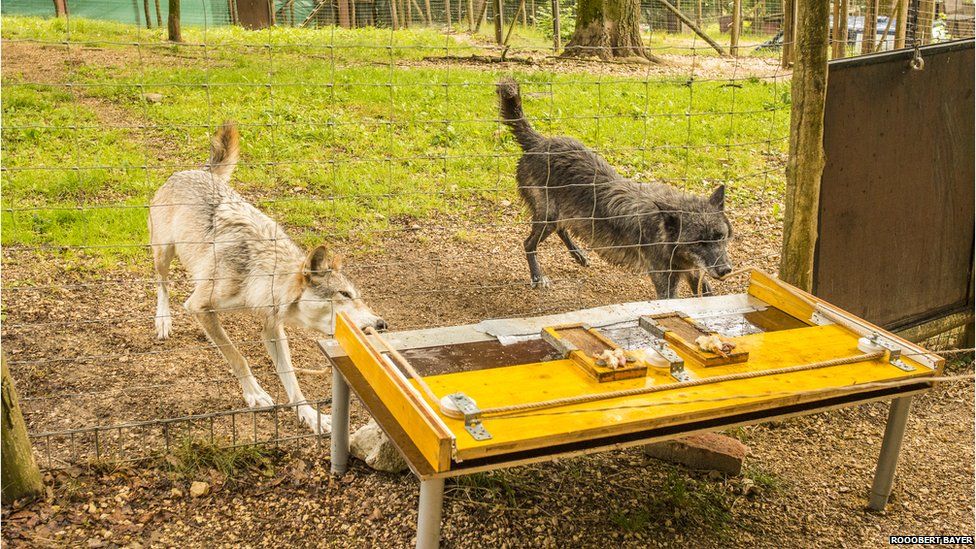'Big, bad wolf' image flawed - scientists
- Published

New research casts doubt on the idea that dogs are naturally more tolerant and friendly than wolves.
In tests of cooperation skills, wolves outperformed their domesticated relatives.
Scientists say the findings challenge assumptions about how dogs were tamed from wolves and came to live alongside humans.
Previous evidence has suggested that the domestication process may have given dogs a more tolerant temperament.
"We still have very much this idea of the big, bad wolf and the cuddly pooch on your sofa," Dr Sarah Marshall-Pescini, who led the research, told BBC News.
"But, I think the simplest message is that the story is not quite as clear as that."
Social bonds
Wolves are highly social animals. They live in close-knit family groups, raise puppies together and hunt in groups.
This sort of behaviour is not seen in modern dogs, despite the idea that domestication selected for dogs that were more tolerant and friendly, both of each other, and humans.
To test whether cooperation comes naturally to wolves and dogs, scientists carried out a classic behaviour experiment.
Known as the rope-pulling test, it involves two animals simultaneously pulling on a rope to pull a tray towards them to get food.
The animals are rewarded with a chunk of raw meat only if they pull the rope together.
The scientists found that dogs succeeded at only two of 472 attempts. Wolves, however, managed the task 100 times during 416 attempts.
Dr Marshall-Pescini of the University of Veterinary Medicine in Vienna said wolves "did pretty well" at the task, performing on a par with chimpanzees.
"[Wolves] are incredibly cooperative with each other and they form very strong social bonds," she said.
Dogs almost never worked together on the rope task, possibly because they wished to avoid conflict.
The experiment took place at the Wolf Science Center in Vienna, Austria, where wolves and dogs are raised from puppies in the same environment.
This gives an insight into the natural behaviour of both animals, away from the influence of humans.
Piece of the puzzle
Dr Krishna Veeramah of Stony Brook University in New York, who is not connected with the study, said wolves are the only big carnivore that has been domesticated.
''It is possible that their social behaviour was key to this process, and thus studies like this help piece together more of the puzzle,'' he explained.
The story of how dogs came to be tamed from wolves is complex and hotly debated.
Some time around 30,000 years ago, wolves moved to the edges of human camps to scavenge for leftovers.
The long process of domestication began to alter the behaviour and genes of wolves and they eventually evolved into the dogs that we know today.
Dogs and wolves are similar in physical appearance, although they have different instincts and temperament.
The research, reported in the journal Proceedings of the National Academy of Sciences (PNAS), suggests there is more to learn about the effects of domestication.
Follow Helen on Twitter.
- Published9 June 2017
- Published19 July 2017